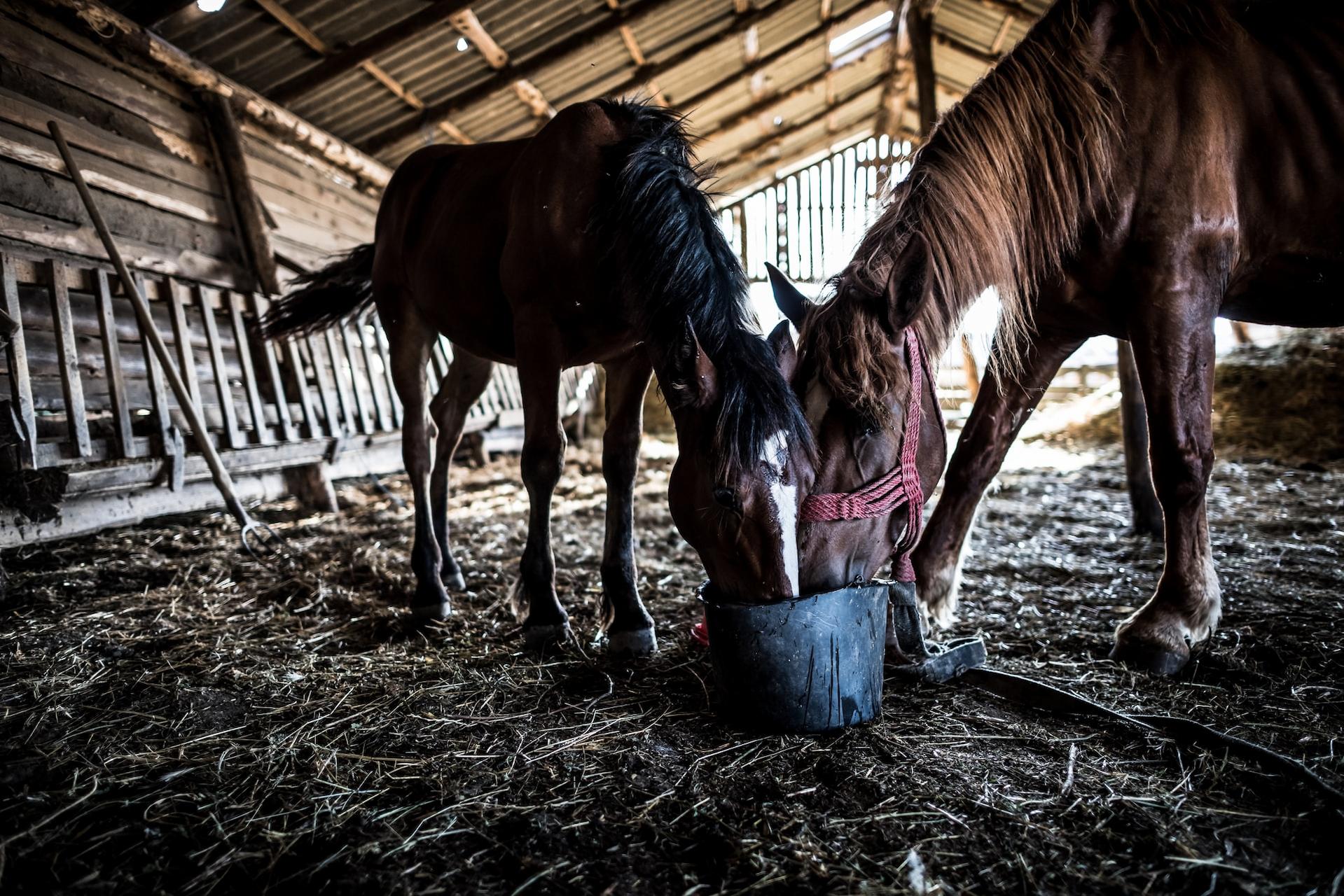
Starch is a way that some plants store excess sugar for later use. The seeds of plants contain starch as the seed uses it as an energy source to grow once it has germinated. Other plants such as alfalfa, store starch in their roots – this means their leaves and stems don’t taste as sweet and so can make them less palatable to herbivores.
The inclusion of starch in a horse’s diet provides the horse with energy and, because it is a more concentrated form of energy than forages, has been used predominantly for working horses. The traditional nose bag would have contained cereals such as oats to provide fuel for the horses. Cereals have continued to be used for sports horses and racehorses but research over the last 25 years has shown that feeding too much starch is the cause of a number of nutrition related issues.
Man Made Eating Habits Compared to Natural Eating Habits
The digestive system of the horse has evolved to function best on ingredients that are high in fibre. Cereals that contain starch are typically low in fibre and so are not ideal for the digestive system. If too much starch is fed in one meal it can reach the sensitive hind gut where it is broken down to produce strong acids such as lactic acid. The increase in acidity causes the micro-organisms to die off releasing toxins that can cause digestive upsets such as colic and diarrhoea.
Studies have also shown that feeding too much starch increases the risk of gastric ulcers. As a rule of thumb, horses should not ingest more than 1 gramme of starch per kilogramme of body weight per meal and no more than 2grams of starch per kg bodyweight per day.
The Taboo: Too Much Starch Means a overexcitable Horse
As well as increasing the risk of health issues, too much starch can also impact on horse’s behaviour. Feeding cereals has been shown to result in higher resting heart rates compared to high fibre rations and increase horse’s sensitivity to novel stimuli which means they are more reactive to new situations.
To avoid this it is advised to feed your horse a high fibre diet instead. Fibre is broken down much more slowly by the digestive systems in horses, meaning energy is released gradually throughout the day, much like humans! High fibre horse feed causes fewer extreme peaks in blood sugar and consequently means less unwanted behaviours.





